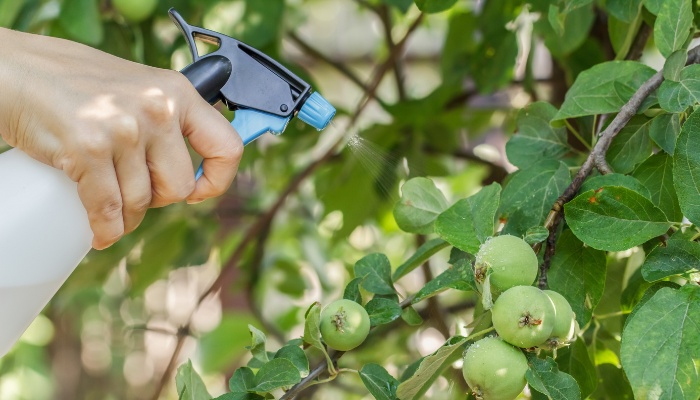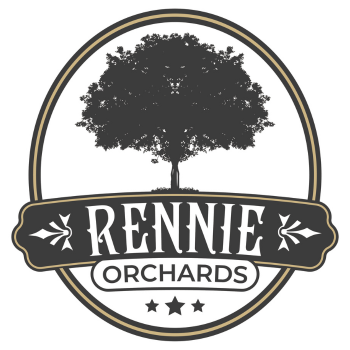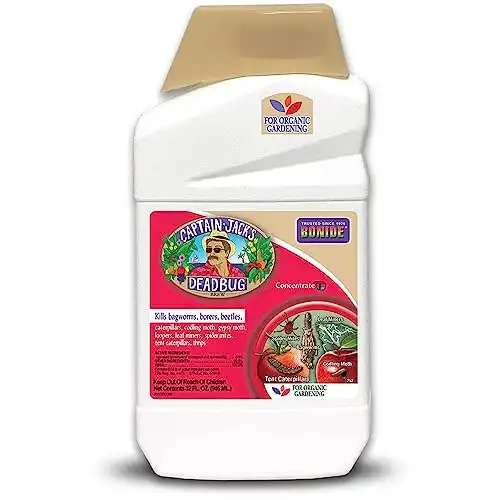When it concerns choosing an organic spray for apple trees, it’s safe to say that there is no shortage of options available.
Whether you’re looking at a commercial product or would rather make one at home, you have many choices. It all comes down to your budget and/or the materials available around the house.
The best thing to spray apple trees with is diluted horticultural oil. With just 1 to 2 percent of the oil in plain water, you have a multi-purpose spray that can tackle anything from aphids and spider mites to fungal spores, bacterial diseases, and pathogens in the soil.
The market is packed with a wide variety of organic sprays for apple trees. This guide reviews the most popular ones and offers alternative sprays that you can make yourself at home.
Don’t let your apple trees suffer from neglect — empower yourself with the knowledge and techniques outlined in my comprehensive article, Apple Tree Care and Maintenance, to cultivate healthy and productive trees.
Effective Ingredients in Organic Apple Tree Sprays
When looking for an organic apple tree spray, your goal is either to repel insects or to kill them.
So what you’re seeking is an organic, preferably natural, pesticide like neem oil.
When making a spray at home, you can substitute neem oil with other horticultural oils such as cinnamon oil and canola oil.
They both have the right viscosity to block the breathing holes on the body of the insects and suffocate them.
You can also add dish soap for its antibacterial properties along with garlic powder, which is an effective insect repellent.
I also recommend a dash of cayenne powder to cover those pests that don’t respond well to garlic, such as beetles.
Organic Commercial Sprays
Organic commercial sprays come in a wide variety of options. Some use neem oil as the main ingredient while others use other organic compounds such as pyrethrins.
Many sprays target both insects and bacterial or fungal infections, but others are limited to just eliminating bugs.
PyGanic Gardening Botanical Insecticide
This is an organic pesticide that contains botanically derived pyrethrins. It’s ideal for a wide variety of plants in the garden including veggies and apple trees.
Unlike other sprays that only repel insects, Pyganic eliminates pest infestations by killing them. It is effective against over 200 insects in the garden.
Natria Neem Oil Spray
With neem oil as its main ingredient, Natria is an ideal spray for apple trees. It targets a wide variety of pests that attack apple trees including aphids, spider mites, caterpillars, and fruit flies among others.
It is safe to use even on fruit-bearing trees and can be applied all year round.
Monterey Fruit Tree Spray Plus
Monterey combines the properties of both neem oil and pyrethrins to create a powerful spray that targets insects, bacteria, viruses, fungi, and pathogens that could damage the apple tree.
It also eliminates the bugs at different stages of their lives from the eggs to larvae and adult insects. The spray can prevent the spread of many apple tree diseases to save the harvest.
Captain Jack’s Deadbug Brew
This organic pesticide uses spinosad, a natural bacteria that infects bugs and eliminates them. This makes Captain Jack’s Deadbug brew an effective pesticide.
Although it targets more bug species than other sprays on this list, it has limited effectiveness against infections and diseases.
All Seasons Horticultural & Dormant Spray Oil
Marketed as a 3-in-1 spray oil, All Seasons is not limited to killing insects. It also eliminates mites and can treat many apple tree diseases such as rust and powdery mildew.
The spray oil can be applied at any season including the growing season or when the tree is dormant.
Southern Ag Thuricide BT
If you have a caterpillar infestation on the apple tree, then using this low-toxicity spray can help you get rid of the pests.
The active ingredient is a bacteria that target caterpillars. It’s safe to use on different edible plants as its toxicity for humans and pets is rather low.
Monterey Garden Insect Spray With Spinosad
This insecticide from Monterey has spinosad, which targets a wide variety of pests and insects that you find in the garden.
It is both odorless and fast acting. Once applied to the apple tree, the insecticide kills the pests that come in contact with it effectively and swiftly.
Monterey Horticultural Oil
Because this is a horticultural oil, it is safe to apply on a wide variety of plants including apple trees.
The oil is effective in eliminating many pests in the garden except for caterpillars and worms, but it does a good job of destroying the eggs.
Homemade Fruit Tree Spray
Apart from these commercial apple tree sprays, there are other options available for you to protect your fruit trees against pests and pathogens.
Surprisingly, products available in your kitchen turn out to be effective against pests when mixed together in the right proportions.
Here are six homemade fruit tree sprays you can try out:
Oil, Soap and Water Mixtures
This is one of the easiest homemade sprays to make. All you need is vegetable oil, dish soap, and water.
The dish soap kills small insects and pathogens while the oil blocks the breathing holes of larger insects and suffocates them.
- Add 2 teaspoons of vegetable oil to a mixing bowl.
- Mix in 2 teaspoons of dish soap.
- Add 2 cups of water to the mix, and shake well.
- Fill a spray bottle with the solution, and apply it to the apple tree.
Optional Add-Ins
The dish soap can be replaced with baby shampoo, and you can add cinnamon oil to boost effectiveness.
Baking soda, blackstrap molasses, apple cider vinegar, and garlic are all popular add-in ideas as well.
Bordeaux Spray
If you happen to have a lot of fungal infections in your area and you want to protect your fruit trees, you can spray them with this mixture.
It contains copper sulfate and quick lime. It targets a wide variety of fungal infections including apple scab, peach leaf curl, and potato blight among others.
However, this mixture contains highly toxic metals, so you shouldn’t use it often. Additionally, you should only apply it during the dormant season as it can damage the tree’s leaves.
Spraying Fruit Trees With Soapy Water
When you run out of ideas to protect your fruit trees, you can just use soapy water.
This basic spray contains only soap and water, but it can be very effective against many types of small pests such as aphids, scales, ants, and mealy bugs. It’s safe to use on most plants since soap is not toxic.
Hydrogen Peroxide and Baking Soda Mixtures
Hydrogen peroxide has the ability to break through the waxy layer that protects the outer skin of many insects, which leaves them vulnerable to lethal cuts.
To make this spray, you’ll need 5 tablespoons of hydrogen peroxide and 3 tablespoons of baking soda. Mix them into 1 gallon of water.
You can also add 2 tablespoons of dish soap to make the spray more potent.

Vinegar Sprays
You can also use vinegar to spray apple trees. Vinegar is a natural compound with the ability to kill many small pests.
It won’t have any negative impact on the vegetation since it’s not toxic — as long as you don’t overdo it. Avoid spraying it on the soil since vinegar can increase its acidity.
Nutrient-Rich Sprays
While preparing your homemade fruit tree sprays, you can add micronutrients to feed the tree while eliminating pests.
Some of the best micronutrients you can add include phosphorus, nitrogen, magnesium, manganese, and iron. You should check that the soil is deficient in these nutrients before adding them.
How Often To Spray Apple Trees
To prevent pest infestations, you should spray apple trees in the early spring.
However, if you notice insects on the tree, you can apply the spray as needed and space the applications 10 to 14 days apart.
In general, avoid spraying the trees during the bloom season to protect the bees and other pollinators.
Related Questions:
What Can I Spray on Apple Trees When Apples Are Growing?
You can spray apple trees when the fruits are growing with natural-based pesticides such as neem oil. Using non-toxic sprays such as vinegar and soapy water is also recommended.
Does Epsom Salt Help Apple Trees?
Epsom salt can improve the flowering in apple trees, which translates into larger yields. Epsom salt encourages the absorption of more nutrients, and it is an excellent choice if you have a magnesium deficiency.
Closing Thoughts
When looking to spray your apple tree and protect it against bacteria, pests, and fungal infections, you can use organic sprays that eliminate the pests and control the diseases without harming the tree or the vegetation around it.
As to whether you should purchase a spray or make your own, the choice is yours.
Just remember that when pests or diseases are attacking your tree, doing something is way more effective than doing nothing.
Now that you’re familiar with organic sprays for apple trees, learn about fertilization and propagation next:
- When To Fertilize Apple Trees: Timing Is Everything!
- Growing Apple Trees From Seed: Issues & Planting Guide








